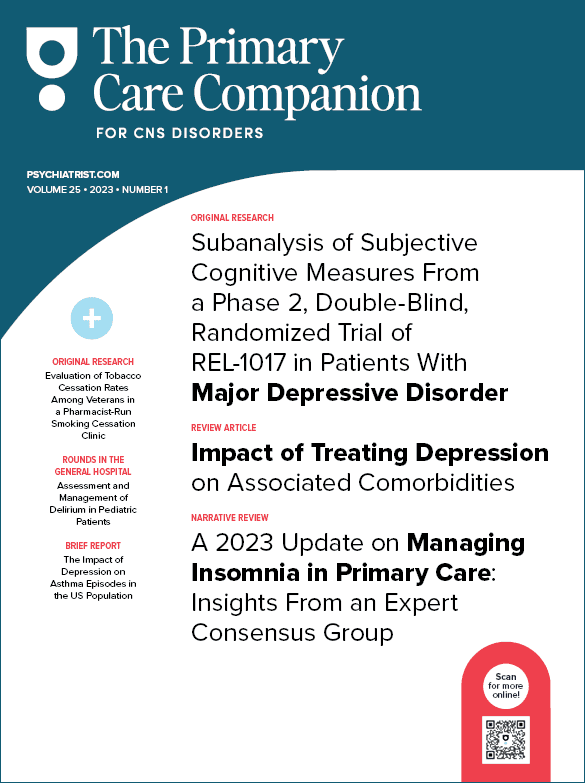Background: New medications that enter the marketplace have been tested almost exclusively in controlled clinical trials conducted in specialty research settings. There is some concern that these carefully selected patient samples may not provide information generalizable to the “real world” clinical population. The purpose of this investigation was to compare results from a large, open-label study of sertraline in the treatment of major depression in the clinical practice setting with pooled results from 2 multicenter, double-blind, placebo-controlled studies conducted in specialty research settings.
Method: Clinical practice patients (N = 1482), aged 21 to 65 years, from 228 psychiatric clinical practice sites across the United States participated in the open-label treatment study (Clinical Practice sample). Patients who met DSM-III-R criteria for moderate-to-severe unipolar major depression (i.e., had pretreatment Hamilton Rating Scale for Depression [HAM-D] scores >= 18) were treated for 8 weeks with sertraline in a flexible dosing fashion (50-200 mg daily). Outcomes on the HAM-D and Clinical Global Impressions-Improvement scale (CGI-I) were compared with the pooled results from 2 previously published placebo-controlled, multicenter treatment studies of sertraline in outpatients with major depression (N = 280). The overall response to sertraline in the Clinical Practice sample was compared with the outcome from the research study patient sample (Clinical Research sample). Additionally, comparison of outcomes of patients with common depressive subtypes (double depression, anxious depression, and melancholic [“endogenous”] depression) were examined.
Results: The percentage of sertraline-treated patients rated as responders on the CGI-I was significantly higher in the Clinical Practice sample compared with the Clinical Research sample (87% vs. 73%; p < .001). Sertraline was also much better tolerated in the Clinical Practice sample than in the Clinical Research sample as evidenced by significantly lower overall reports of adverse events (9.4% vs. 13.2%; p < .05) and lower patient dropout rates (17.5% vs. 34.3%; p < .01). Among clinical practice patients, sertraline was found to be equally effective in treating endogenous/melancholic and anxious subtypes and only mildly less effective in achieving a response in patients with double depression (chronic low-grade depression with a superimposed major depression). A regression analysis identified older age and double depression as being predictors of a slower time to response. More than 70% of patients who reported nonresponse to previous treatment with fluoxetine or a tricyclic antidepressant responded to sertraline.
Conclusion: The effectiveness and tolerability of sertraline treatment was found to be significantly better in the Clinical Practice sample, suggesting that the results from controlled studies in research settings may represent an underestimate of the benefits of a drug. More effectiveness research is needed to confirm and extend these findings.
Save
Cite
Advertisement
GAM ID: sidebar-top




